Keynote Speakers
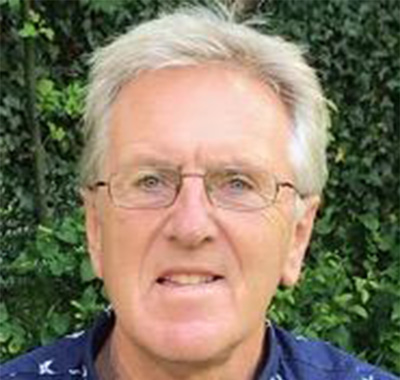
Neil Mercer
Neil Mercer is Emeritus Professor of Education at the University of Cambridge, Director of Oracy Cambridge: the Centre for Effective Spoken Communication, and a Life Fellow of the Cambridge college Hughes Hall. He is a psychologist whose research has focused on the development of children’s spoken language and reasoning abilities and teachers’ role in that development. He has worked extensively and internationally with teachers, researchers and educational policy makers.
He was given the Oevre Award by the European Association for Research into Learning and Instruction and the John Nisbet Fellowship by the British Educational Research Association for outstanding contributions to educational research. His books include Words and Minds, Exploring Talk in School, Dialogue and the Development of Children’s Thinking, Interthinking: putting talk to work and Language and the Joint Creation of Knowledge. He was co-editor of the Routledge International Handbook of Research on Dialogic Education.
Abstract of Keynote Speech
As a result of careful research carried out in classrooms internationally, we now know much about how the organisation and use of spoken language in schools affects learning outcomes. In my presentation I will address the following questions:
♦ What can we learn from observing student talk, including how students learn from each other?
♦ What can we learn from observing teacher talk (during teaching and during Lesson Study meetings)?
♦ How can we use what we learn from observing talk to improve the quality of teaching and learning?
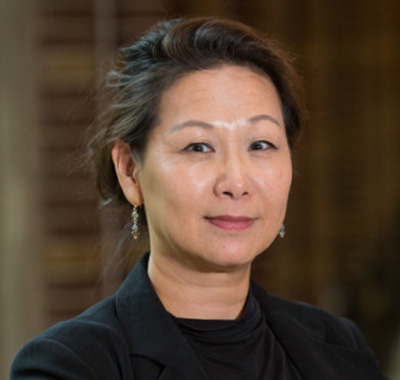

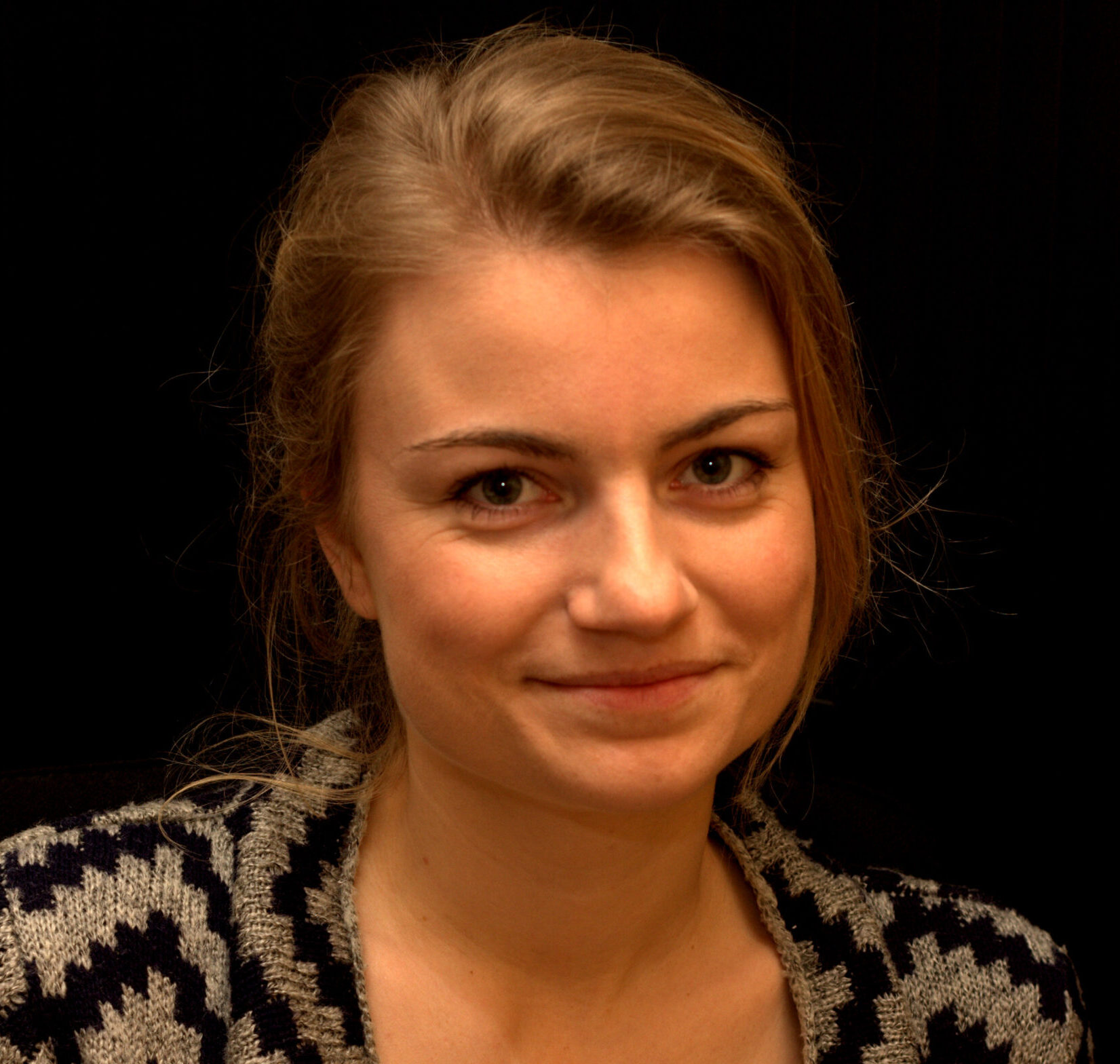
Sui Lin Goei with Jia Jia Li and Iris Uffen
Sui Lin Goei is Professor at Windesheim University of Applied Sciences, and Assistant Professor at VU Amsterdam, Netherlands. Her research focuses on training teachers’ self-efficacy in inclusive teaching. For this purpose, she uses a professional development strategy known as Lesson Study. She is one of the founding members of the Dutch consortium Lesson Study NL (www.LessonStudyNL.nl), in which eight Dutch universities are united. She was the co-author of the first practical guide on Lesson Study in the Netherlands and is involved in numerous Lesson Study implementation trajectories in schools (inter)nationally. Sui Lin also serves as a member of the Executive Committee in the World Association of Lesson Study (https://www.walsnet.org) where she heads the PhD and Early Researchers group. She was recently appointed Co-Editor-in-Chief of the International Journal of Lesson and Learning Studies. From 2010-2014, she was a visiting professor at the National Institute of Education (NIE) of Nanyang Technological University of Singapore, where she was first introduced to Lesson Study.
Jia Jia Li is a Chinese PhD candidate in the Department of Educational Studies of the Faculty of Behaviour & Movement Sciences, Vrije Universiteit Amsterdam. She received a CRC grant from Jilin University, China. Her research focuses on developing a design thinking-based pedagogy to foster maker mindsets for children in elementary schools engaged in maker education projects. Among others, she uses the Lesson Study approach, in which teachers in STEM Education use DT pedagogy to design maker education projects.
Iris Uffen is a Dutch PhD candidate at the Teacher Education Department of the University of Groningen. Her research project is one of the research grants that the Dutch consortium Lesson Study NL (www.LessonStudyNL.nl) had acquired. Her research focuses on teachers’ learning processes during Lesson Study, and the facilitators’ role in optimizing these learning processes. She is currently in the final stage of her Ph.D. trajectory. The insights from her studies are used in a Dutch handbook for Lesson Study facilitators.
Abstract of Keynote Speech
Teacher Learning through Talk in Lesson Studies
This keynote presentation is the result of a team effort by Sui Lin and two of her PhD students: Jia Jia Li and Iris Uffen. We focus on teachers’ learning from their students’ learning when participating in Lesson Studies. Teachers do so by trying to understand and challenge different perspectives of their students’ learning. Their talk can provide them with an opportunity to explore different perspectives beyond their own already acquired perspective. Teacher talk in Lesson Studies can be a mediating component of teacher learning in this popular professional development approach. An important feature is the collective focus on student learning via teacher dialogue, and activities centered on promoting student learning and development. After an interactive talk about talk during a Lesson Study, I will share examples of teachers’ learning through their talk in several Lesson Study contexts. For instance, one in which teachers try to understand their students’ learning in a subject matter and one in which they focus on the function of behavior when – from their teachers’ perspective–students show disruptive behavior.
In addition, Jia Jia will focus on the findings of a pilot project that used the lesson-study model to redefine project-based Maker Education at a Chinese elementary school. Her focus will be on how three students’ dialogic interactions with the teacher evolved throughout the Lesson Study cycle, and how these changes influenced participating teachers’ understanding of Maker Education. To achieve this, I will provide background information on the project, highlight instances of teacher-student interaction that demonstrated significant changes in the actual classroom, and share excerpts from teachers’ discussions that reflect the concept of “learning.” The outcomes of this project show that closely observing students’ learning processes helps teachers develop customized pedagogical approaches that cater to their specific needs at different levels. These changes are evident in students’ dialogic interactions in real classrooms.
In closing this keynote, Iris Uffen will focus on how a facilitator can contribute to the quality of teacher talk. In particular, she focuses on the post-research lesson discussion: How can facilitators carry out its purpose and how can they organize the discussion in support of its inquiry-oriented nature? Furthermore, she provides a closer look at communicative acts by the facilitator that supports teachers in deepening their understanding and challenging their assumptions about their students’ learning.

Claudia Mewald
Claudia Mewald teaches English as a Foreign Language methodology, testing and assessment in foreign language education, and qualitative research at the University College of Teacher Education in Lower Austria. Before, she taught English, History, and Arts at primary, special educational needs, and secondary schools. Her research interests are testing & assessment, learner autonomy, content and language integrated learning (CLIL), competency-based language education, and multilingualism. She is council member of WALS and implements Lesson Study in teacher education and continuous professional development.
Abstract of Keynote Speech
Lesson Study Is The Engine For The Dialogue Between Teachers!
Teachers talk all the time: They talk with pupils, colleagues, mentees, school leaders, parents, school inspectors, and many more. However, they don’t just talk to them, they actually engage in meaningful dialogues which become profound discourse through Lesson Study. To support this claim, I will explore how teacher talk becomes discursive through Lesson Study. Reflective processes in teaching and learning are more likely to become tangible if reports from teachers are fuelled through their collaborative discourse which harnesses the power of their talk to stimulate and extend thinking and advance learning and understanding. Whose learning? — you may now want to know. Experienced teachers and their students will answer this question and tell their personal Lesson Study stories. Together we will outline how a conscious approach to discursive Lesson Study talk can be the engine for reflective teaching, providing the best possible environment for pupil learning.
Teaser:
In this keynote I will address the importance of discursive teacher talk in the development of reflective teaching to create the best possible learning opportunities for pupils. Teachers’ Lesson Study stories and research into teacher talk will show the power of discourse and its effects on teaching and learning.
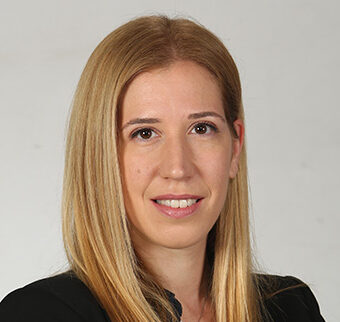
Maria Vrikki
Maria Vrikki is a Postdoctoral Researcher at the University of Cyprus and the University of Nicosia. Her research concerns identifying high quality dialogues and studying their relationship with learning mainly in classroom contexts and in collaborative teacher professional development contexts. Maria has worked on research and development projects with research teams at the University of Cambridge and, more recently, at the University of Cyprus to implement Lesson Study in primary and secondary schools. She has published her work on the relationship between teacher dialogues and teacher learning in Lesson Study in peer-reviewed journals and has presented widely at international conferences. Maria holds a DPhil (PhD) degree in Education (Second Language Acquisition) from the University of Oxford and has experience in teaching to undergraduate and postgraduate students at institutions in the UK and Cyprus.
Abstract of Keynote Speech
Although Lesson Study is increasingly being acknowledged as an effective model of teacher professional development, not all Lesson Study teacher teams seem to work equally well. Recent research has shed light on the importance of teacher dialogues and their quality as the reason behind more successful Lesson Study teams. In this research, teacher talk is viewed as the manifestation of the thinking processes that teachers go through when jointly planning and reflecting on research lessons, making in this way the learning of teachers visible. In this keynote, I will argue that teachers need to develop an awareness of their use of dialogue in order to foster their learning gains when participating in Lesson Study. I will shed light on tools that can support teachers’ dialogues, but also on the role of facilitators in promoting productive forms of teacher dialogues. I propose that this should be an integral part of the multi-layered role of the facilitator, as a way to build teacher autonomy in the implementation of Lesson Study.
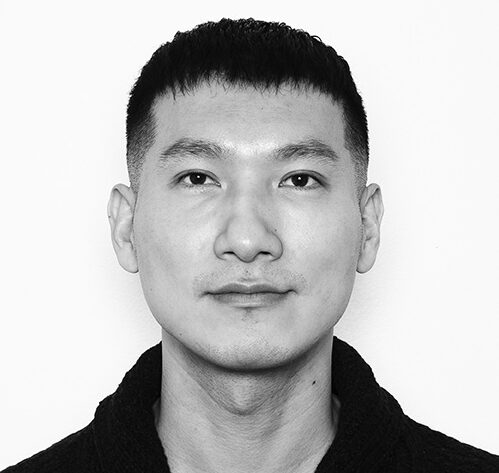
Jongsung Kim
Jongsung Kim is an Associate Professor at Hiroshima University, where he teaches social studies methods courses and runs international research projects and student exchange programs. As a Korean “stranger” in a Japanese classroom (Simmel, 1950), he has seen the familiar as unfamiliar in Japan, brought new ideas that do not originate from Japan, and bridged the Japanese academia with others outside the country. In the context that lesson study has taken for granted, Dr. Kim has explored the sociocultural context that has supported lesson study in Japan, critically examined the current situation of Japanese lesson study, and made suggestions to improve it. In 2021, he edited a book published as the WALS-Routledge Lesson Study Series, “Lesson Study-based Teacher Education: The Potential of the Japanese Approach in Global Settings,” with his colleagues.
Abstract of Keynote Speech
Suppose lesson study as a “lesson” in teacher education, which aims at the participants’ professional development with a specific curriculum and instruction. In that case, lesson study becomes a subject of “lesson” study that can be observed, analyzed, and reflected on with other facilitators. With this understanding, I have done lesson study about lesson study with my critical friends in order to become a better lesson study facilitator. In this keynote speech, I share my journey of struggle and growth as a mirror that audiences can refer to in their own contexts and argue that facilitators’ talk can be an approach to the professional development of lesson study facilitators. Firstly, as a Korean “stranger” in a Japanese classroom (Simmel, 1950), I illustrate the sociocultural context that supports the existence of lesson study facilitators and critique the lack of opportunities for lesson study facilitators’ professional development. Secondly, I showcase my self-study about my role as a Korean lesson study facilitator in a Japanese classroom. I argue that exploring the relationship between a lesson study facilitator’s performance and their identity benefits their professional development. Thirdly and finally, I introduce a case of lesson study about lesson study that I conducted with my critical friends. I argue that talking in a lesson-mediated public sphere that goes beyond “borders” created by facilitators’ expertise and specialties, which interferes with discussing a lesson with other facilitators, enables the facilitators to relativize their performance in lesson study and grow as better facilitators.